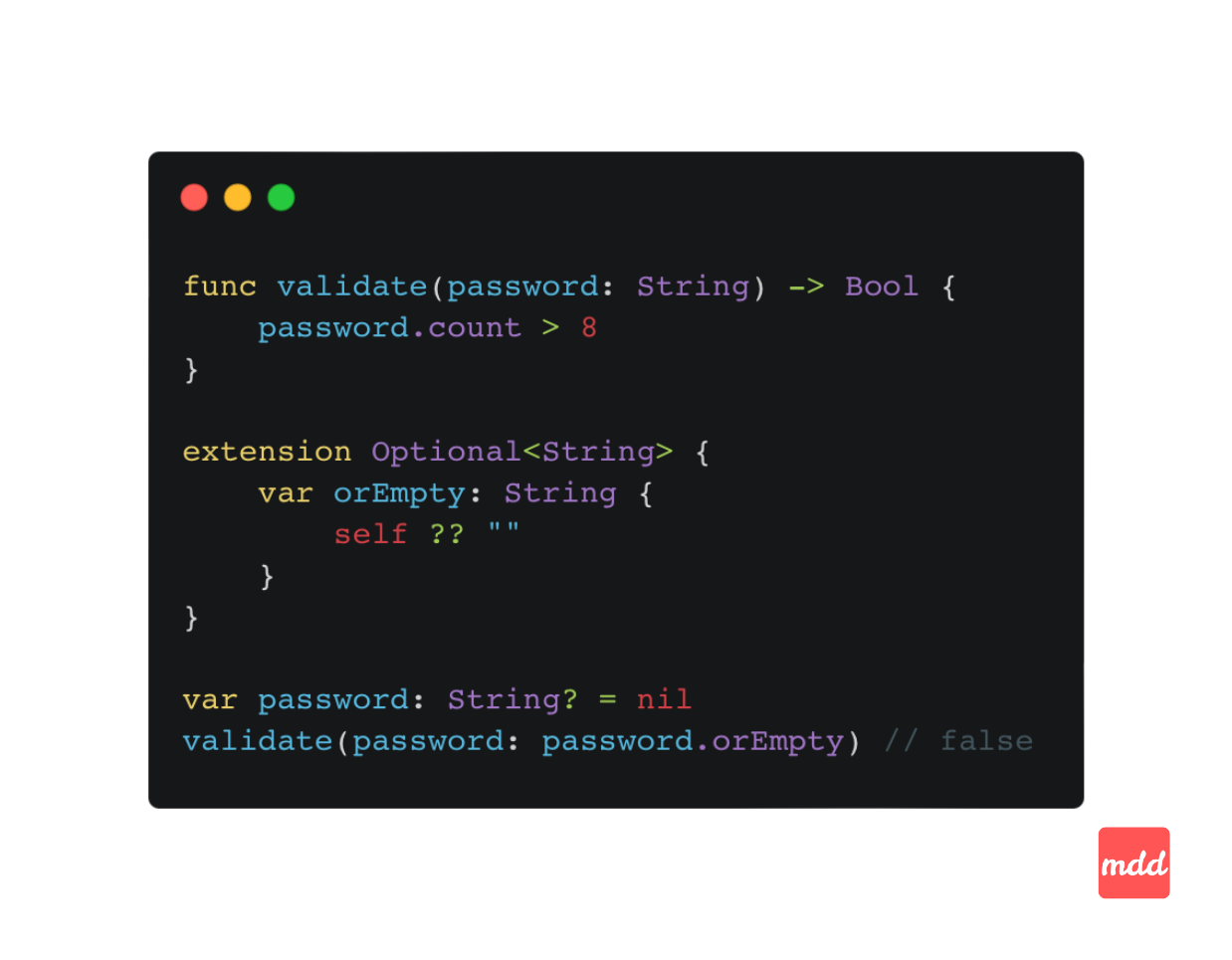Swift code refactor in action 👨🏻💻
Take a close look at the validate function. There’s a sneaky problem hidden in this code snippet.
- What will the function call return when passed
nil? - What problem is hidden here?

First, the guard statement is redundant here. We can simplify the function to ⤵️
func validate(password: String?) -> Bool {
password?.count ?? 0 > 8
}
There’s no need to wrap password?.count ?? 0 in parentheses since the ?? operator already has higher precedence than >.
Second, there’s a logical issue with the function signature. Does it make sense for the password to be optional? In my opinion, no. Logically, when validating a password, I’d assume the password already exists, and the argument should be non optional ⤵️
func validate(password: String) -> Bool {
password.count > 8
}
Notice how clear the validation rule becomes now - it’s immediately understandable without any extra thinking.
If the text value is exposed by UI component as optional, we can conveniently handle this by introducing a simple extension ⤵️
extension Optional where Wrapped == String {
var orEmpty: String {
self ?? ""
}
}
Code snippet with full version ⤵️

Thanks for reading. 📖
I hope you found it useful!
If you enjoy the topic don’t forget to follow me on one of my social media - LinkedIn, X, Mastodon, Bluesky or via RSS feed to keep up to speed. 🚀
